Fit2Farm: How to recognise and deal with stress
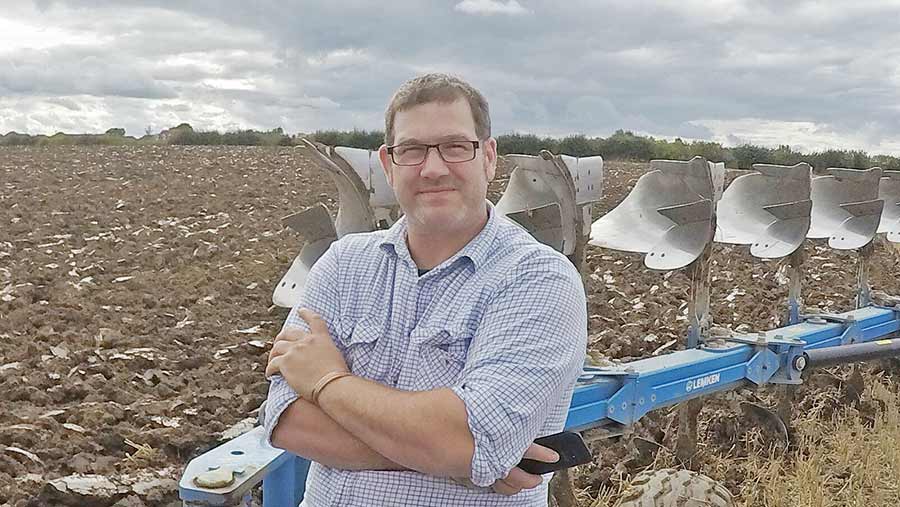 Mark Turner
Mark Turner Combating stress is among the top challenges facing growers and livestock producers, reveals a Farmers Weekly survey which lifts the lid on the day-to-day pressures of running a farm business.
Some 28% of farmers and farm workers want to know more about how better to manage stress in the workplace, according to the study. Almost as many respondents (25%) say they would benefit from techniques that help them stop worrying about work all the time.
Published to mark the start of a Farmers Weekly campaign called Fit2Farm, the survey findings highlight the importance of healthy farmers to healthy farm businesses. The study was carried out in association with Bayer and Isuzu.
Farming is an all-consuming job, confirms the survey. Working on average 65 hours each week, many farmers find little time to relax or switch off, with 40% saying they find it hard to balance work and family – or get away from the farm.
In numbers
-
- 28% of farmers want to know more about managing stress
- 25% want techniques to stop worrying about work
- 36% say their physical health is average or lower
- 55% say they exercise outside work
- 13% say their mental wellbeing is not good
Source: Fit2Farm survey, Farmers Weekly
Too much pressure
The Health and Safety Executive defines workplace stress as the adverse reaction people have to excessive pressures or other types of demands at work. Too much pressure can result in a raised heart rate, adrenalin production and activation of the nervous system.
This can manifest itself in a “flight or fight” response, says Nuffield scholar Holly Beckett, project director for the Focussed Farmers initiative, which works with farmers to help them achieve their vision and goals with less stress and less effort.
“Stress is a uniquely personal experience. It’s a bit like beauty – it’s in the mind of the beholder,” she says. “It’s not what’s going on around you that causes stress – it’s what you think is going on around you.”
In other words, different people can respond in different ways to the same situation. One person might find pressure motivating, while another might find it stressful. “It’s really important for people to actually understand stress to manage it effectively,” says Ms Beckett.
In agriculture, stress is often caused by things we feel we have no control over – such as market prices, the weather, other people’s attitudes towards farming, government bureaucracy or the prospect of imminent bovine tuberculosis test results.
Short bouts of stress are normal – especially in difficult circumstances. But prolonged periods of stress are bad for our health and affect our mental wellbeing as well as our physical state.
Keeping perspective
Minimising stress is about being able to “manage our minds” away from the things we can’t control and redirecting our focus towards things we can influence, suggests Ms Beckett. Not always easily done, it can be achieved – to the benefit of the farm business as well as our own welbeing.
“What is important is that an individual finds an activity to do and engage in that takes their mind away from what may be troubling them – or pose a threat in some way,” she says.
Many farmers prevent or reduce stress by going to the gym or doing other forms of exercise. Just over half (55%) of those who responded to the Farmers Weekly survey said they exercised outside work, with one in five (19%) saying they did so several times a month.
Suffolk farm manager Ben Martin says he comes back refreshed after taking time out: “For me, it’s about being able to switch off from work. That’s exercise, football, time with my wife, bike time with mates and quality walks with the dogs. Simple stuff really.”
For those unable to find the time to get away, Ms Beckett says it is still possible to escape on the farm. “I don’t believe it’s necessary to leave the farm physically. If you can’t get away in person, it is still good practice to leave the farm mentally and emotionally for a few moments each day,” she says.
Warwickshire livestock farmer Adam Quinney does just that: “I turn the phone off and go and talk to the cows and calves – especially the ones that have some grass,” he says. “It reminds me that life is not so bad.”
Managing stress
Five ways to identify stress…
- Trouble sleeping through the night
- Being irritable or having a short temper
- Lack of appetite (or even over-eating)
- Getting frequent colds or other ailments
- Feeling panicked or anxious regularly
…and five ways to redirect your focus:
- Take regular exercise
- Go for a walk
- Make time for a hobby
- Watch a movie or read a book
- Spend time with family or friends
Source: focussedfarmers.com
Case study: Laughter really is the best medicine

Paul Davey
Finding time to laugh is vital for north Lincolnshire cereal grower and sheep producer Paul Davey, who farms between Brigg and Grimsby – as well as running the family’s Ideal Lincs food wholesaling business.
“Make sure you laugh with your workmates, spouses or partners, children – or complete strangers,” says Mr Davey, who supplies produce to a mix of local and national retailers. “It doesn’t matter how tough it gets, go and laugh with someone about anything.”
Mr Davey admits he is a naturally upbeat person – and has a supportive family. But he has also seen his fair share of setbacks triggered by late support payments, delays with fruit and vegetable authorisations and unscrupulous lenders.
“I don’t really get down – but not everybody is as lucky,” he says.
“We are resilient, but sometimes because of our passion we take much more punishment than we should. Someone once said to me that the only thing money solves is money worries. I think that is something we as farmers need to keep sight of – and not take things so seriously.”
Case study: Photography and farming go hand in hand

Mark Turner
Sprayer operator and amateur photographer Mark Turner says his hobby is a welcome diversion and keeps his job in perspective at Rise Farms, near Hull.
Mr Turner uses a Bateman RB35 with 30m booms to spray 900ha of arable crops and peas. “I wouldn’t say I get stressed, but I do need a distraction to stop the head from overloading – so I think photography as I am doing my job: wildlife, skies, sunsets, machinery and drone pictures.”
A finalist in the 2018 Farm Sprayer Operator of the Year (FSOOTY) award, Mr Turner says he got into photography because a few friends were taking pictures. Farming and photography go well together because agriculture, nature and wildlife make such great subjects, he adds.
Mr Turner says his passion for photography has grown since a family tragedy in which he lost his brother 18 months ago. “It’s been a struggle and still is at times – it’s never long before I go back to thinking about my brother, but hopefully I am starting to climb out of it now,” he says.
Photography concentrates the mind, he adds. “I am always thinking how I can I make it better; whether it is composition or lighting, it tends to be a good distraction. And of course sharing the results using social media is enjoyable too.”
Fit2Farm ambassador: “You have to have a way to get away”
“Everyone has a place where they are happiest,” believes Welsh rugby international and Fit2Farm ambassador Dan Lydiate, who says family life helps him unwind from the rigours of professional sport.
The 30-year-old Ospreys flanker, whose family runs a sheep and beef farm near Llandrindod Wells, has teamed up with Farmers Weekly to highlight the importance of health and wellbeing among farmers and farm workers.
Like most farmers, Dan is passionate about what he does. But taking a professional approach to both rugby and farming has to be carefully managed, he says. “Stress is a massive thing – everybody is different and everyone is driven, but you have to have a way to get away.
“When I’m trying to unwind, I imagine going for a walk on the farm – even when I am not at home,” he says. “I visualise going for a walk in a certain field – or just standing there. I am not doing anything or going anywhere, but I find it calms me down.”
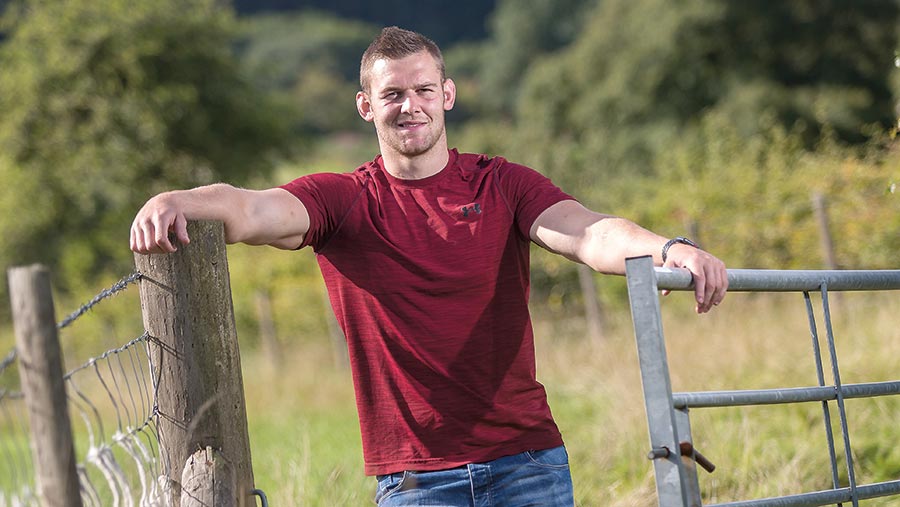
© Richard Stanton
Video: Watch Dan Lydiate describe how he balances the pressures of professional sport with life on the farm
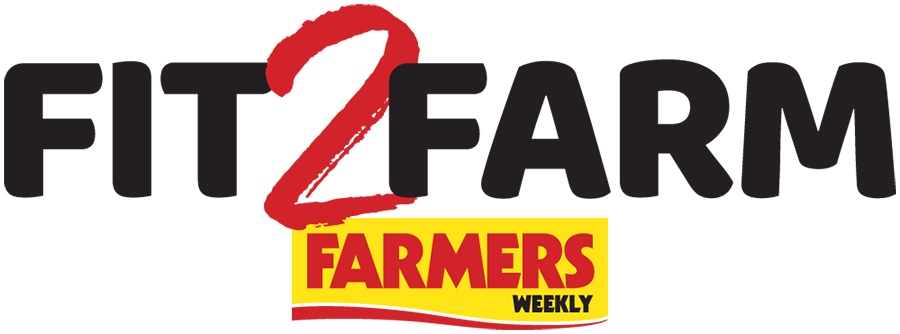
Farmers Weekly has launched a new campaign to help farmers discover how they can improve their own health, wellbeing and work-life balance.
It’s all about making sure you are in top shape, physically and mentally to run your farm business.
We’ve been joined by business and charities to raise awareness for this campaign. Read about our sponsors below.
Read all of the articles in the Fit2Farm series
Fit2Farm: How farmers can improve their mobility to avoid injury
Fit2Farm: How a farmer’s wife helps others in tough times
Fit2Farm: Why farmers need to eat better and exercise more
Fit2farm: Wellbeing guru shares top health tips for farmers
Fit2Farm: How a better work-life balance benefits farm
Fit2Farm: Hard work and long hours take toll on farmers
Fit2Farm: FW campaign to improve farmers’ health
Video: Rugby star signs up to be Fit2Farm ambassador
Advice on fixing relationship problems for farming couples
Our sponsors
Bayer
 Your wellbeing is just as important to your farm’s future as looking after your land, crops and animals. Looking after yourself helps you be more productive and confidently face new challenges.
Your wellbeing is just as important to your farm’s future as looking after your land, crops and animals. Looking after yourself helps you be more productive and confidently face new challenges.
At Bayer, we have health and nutrition at our core, so we are delighted to support Fit2Farm.
Find out more at cropscience.bayer.co.uk/wellbeing
Isuzu

Isuzu are proud to support UK farmers of today and as the pick-up professionals we understand that having the right tools and equipment are vital elements to making the working day go that much easier.
That’s why with Isuzu, our pick-ups are strong, durable and built to go the distance, so you can focus on the job in hand.
Find out more about the Isuzu D-Max range on our website
Our charity partners
Farming Community Network

The Farming Community Network (FCN) is a voluntary organisation and charity that supports farmers and families within the farming community through difficult times.
FCN’s volunteers provide free, confidential, pastoral and practical support to anyone who seeks help, regardless of whether the issue is personal or business-related.
Helpline: 03000 111999
E-Helpline: help@fcn.org.uk
The helpline is open every day of the year from 7am to 11pm
Website: www.fcn.org.uk
Farm Safety Foundation
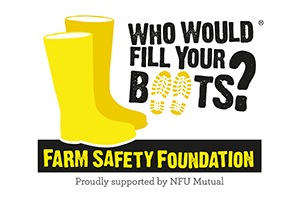
The Farm Safety Foundation is an award-winning charity raising awareness of farm safety among the next generation of farmers.
Through training and campaigns such as Farm Safety Week and Mind Your Head, the Foundation tackles the stigma around risk-taking and poor mental health, ensuring that that next generation of farmers is equipped with specific skills to live well and farm well.
Website: www.yellowwellies.org
Worshipful Company of Farmers
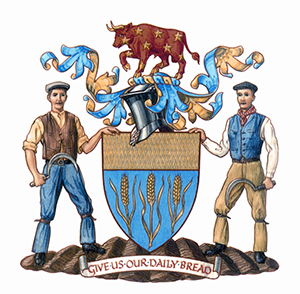
The complexity, risk and relentless uncertainty within agriculture today take a tremendous toll on all those who work in the industry; never before has resilience been so crucial.
Recognising this we are delighted to support this new initiative to promote good health and wellbeing. It’s a fresh approach and demonstrates that working together we are always stronger.
Website: farmerslivery.org.uk

